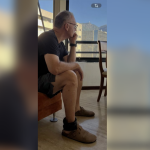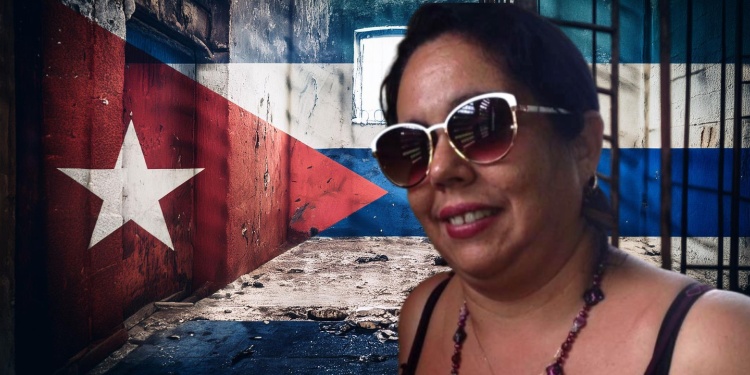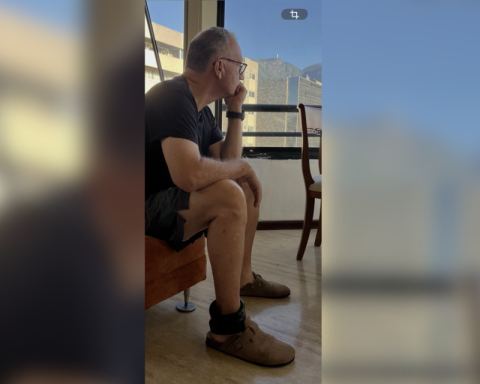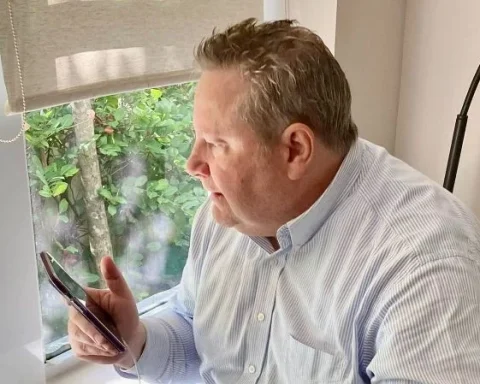Breaking traditional standards and betting on a national agreement that reactivates the country’s economy from seven fundamental axes, is the plan that the Government has in mind to face the slowdown whose prolongation It is already hitting hard areas such as the labor market and tax collection.
To this end, on Friday he signed six pacts with which he called on the private sector, unions and social sectors; to work together and in the next six weeks prepare the actions to be implemented on this front: Housing, agriculture, commerce, industry, tourism, popular economy and support for MSMEs; are some of the sectors they want to focus on to resume the pace of growth.
For reading: Possible changes in the Bank of the Republic and the constituent assembly worry JP Morgan
One of the fronts will be in charge of the Ministry of Finance, whose mission will be to ensure that the economy advances steadily towards a path of recovery and that confidence is strengthened so that investment returns. This is why Minister Ricardo Bonilla, head of this portfolio, said that first of all we must be aware of the reality that we all face.
“In the post-pandemic years we grew on the back of debt and now we are feeling all that fiscal pressure. We are fulfilling the commitments we made, we got into debt at very short notice and that is what has us cornered, because we are wondering how we are going to grow. With the remainder that remains after paying what we owe,” said this official.
Reactivation forum.
The Director of National Planning, Alexander López, also provided details of this reactivation plan and made it clear that this is an opportunity to do things differently and create strategies that break with the “traditional standards,” which from his perspective, have led the economy to the levels of weakness that are currently seen.
“The country’s economic structure is weak and unfortunately has been focused “In the underground, in remittances, in real estate income, in imports and in illegal economies, as has been seen recently in our country. That is not good enough for us and we cannot reactivate the economy under traditional standards. We have to take a leap and that leap means that moving towards the development of the country implies great changes, not only from the Government, but also from the private sector,” he said.
Banking and entrepreneurs
During the signing of this agreement for reactivation, Bruce Mac Master, president of Andi, María Lorena Gutiérrez, president of Grupo Aval, Ramiro López, representative of the Inter-American Development Bank (IDB) and María José Navarro, superintendent of the Solidarity Economy, were present; who in addition to signing this commitment, gave their ideas on how the reactivation should advance.
Other news: Residents of strata 3, 4, 5 and 6 would have a new charge with this reform
From the banking sector, María Lorena Gutiérrez stated that although she applauds the Government’s conciliatory spirit, words must be put into action and that the moment the country is experiencing demands that measures be implemented. actions that do not depend on external factors, such as the timing of Congress.
“It is time to execute, it is not time for any law, we must concentrate on doing. A financing law will take its time, a law on forced investments will take its time and I think we are not ready for that. In that sense, we ratify our commitment from the banking sector, to accelerate the reactivation, to be practical and to get the economy moving forward,” said this expert.

Economic growth
iStock
For his part, Bruce Mac Master, president of Andi and the Trade Council, He said that the country is at a time when the most important thing is to propose, but also to listen, since the economy poses great challenges in terms of sustainability and fiscal responsibility, which must be addressed as a team.
“At this moment there is great hope regarding the possibility of working as a team with the Government and all sectors. Today we assume a responsibility, but we can start working precisely on those points of agreement, which I am convinced are many, I am one of those convinced that any space for dialogue and joint construction is always welcome,” said Mac Master.
Among the commitments signed with the Ministry of Finance are consolidating a synergy between the public sector and the private financial sector for the mobilization of 35 billion pesos in order to promote activities of MSMEs and include and articulate the popular and community economy with production chains and formal business structure.
You may be interested in: Income tax return: Dian presented seven new tools to facilitate the process
Likewise, it was agreed to promote private investment through the reduction of the nominal rate of the corporate income tax, among other actions, promote environmental sustainability actions in perspective of the energy transition and promote reactivation strategies according to regional needs, advance in the implementation of the reindustrialization policy and promote joint actions between the public and private sectors so that tourism becomes a key sector for the regional and national economy.
In light of this, Ramiro López, from the IDB, highlighted that in Colombia “there is no paralysis, The country’s economy is growing at a similar rate to that of Latin America, especially South America. Now, as far as investment rates are concerned, they are similar to those that have been seen in history and this has helped to face the challenges brought to us by the economic dynamics in the post-pandemic period.”

Microenterprises concentrate the majority of the productive fabric and employment.
iStock
Making way for the new
President Gustavo Petro was in charge of closing this reactivation forum and taking advantage of this moment, he stated that what the country has seen in the two years he has been in government is the reflection of what he promised during his campaign, mainly in areas such as the strengthening of production lines that had been forgotten for years.
“There is no wealth without production, there is no wealth without work. That is what the fathers of classical economics said, but that world was abandoned, there was nothing that told us to stop living off, for example, that pride that coffee was for us… Coffee production did not end, its predominance as a structuring factor of the economy ended and after that we moved to a model that was already sand exhausted, mainly since the pandemic, I am talking about extractivism,” said the Head of State.
Read also: The banks that lead the ranking of market makers, prepared by the Ministry of Finance
The national leader added that there is no time to bet on a stability that does not depend solely on coal and oil and that, on the contrary, begins to look towards sources that generate more jobs and care for the environment, emphasizing that Colombia has all the potential to achieve this.
“Since 2013 we have not had coal prices again, “nor of the oil that was available at that time. Production levels are maintained, we have good reserves, but we are selling less and less and it is not due to a single government policy. It is necessary to end this extractivist vision because the world does not buy these products at the same level as before,” he said.

Gustavo Petro
Presidency
President Petro stated that this argument, along with others that are seen daily in the world news, demonstrate that society has already become aware of threats such as the climate crisis and is changing its course, which for him must be followed by the country and its productive apparatus, so as not to be left behind in the commercial race.
In this sense, although he said that he is not an enemy of capitalism, it is time for its progress to be made in a decarbonized way, using new sources of energy generation, since it would not only be cheaper for the country, but would help it to be at the forefront of the economic system.

















